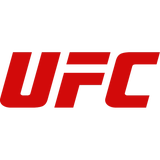
Georges St-Pierre recounts angry meeting with UFC owners after his last fight

Former welterweight champion Georges St-Pierre recently revealed on Chael Sonnen's “You're Welcome” podcast that if not for UFC president Dana White's rant against him after his UFC 167 title defense against Johny Hendricks, he may not have retired and instead chosen to give Hendricks a rematch.
"I'm going to tell you the truth. If this whole thing had not happened after the fight . . . maybe I would have already been back and maybe I would have given the rematch to Johny Hendricks," St-Pierre said.
During an interview with MMA Fighting Monday, St-Pierre expanded on that and told his side of one of the stranger UFC post-event nights in history, following what turned out to be the fighter's last contest. In addition to claiming that the UFC tried to prevent him from attending the post-event press conference, which the promotion denied, and saying that UFC officials literally nabbed his championship belt while he was in the locker room that night, GSP recounted a profanity-filled meeting with White and company CEO and co-owner Lorenzo Fertitta.
Though White had his own angry and public tirade regarding St-Pierre after the champion declared he needed a break in the ring following his controversially-close decision win over Hendricks, the anger and cussing in the meeting between the fighter and promoters came from the usually mild-mannered Canadian.
"I'm not going to tell you exactly what was said," St-Pierre began.
"But I was very pissed off and I used a lot of F words . . . I was very angry, they did not support me because of the testing issues for the doping, they did not support me for the anti-doping. And I told them, 'Why they didn't support for this?' and I didn't understand it. I said, 'You guys need to wake up, because a lot of people are cheating, and stuff, and it's a freaking joke. You guys are kind of protecting these guys, and it shouldn't be like that.' I was very angry."
The superbly conditioned St-Pierre had long been accused of banned performance-enhancing drug (PED) use by opponents like BJ Penn and Nick Diaz. Leading up to his fight with Hendricks, St-Pierre lobbied for additional and intensified drug testing for him and his opponent by an outside agency.
Hendricks decided not to, citing a potential conflict of interest between St-Pierre and the agency, and White brushed off the suggestions, saying that normal athletic commission testing was the way to go.
St-Pierre felt a lack of support on the issue, and the UFC 167 post-event presser didn't endear him to his bosses any more. Hence, why he says he exploded in anger at Fertitta and White.
St-Pierre went on to claim that the UFC knew full well about PED-use problems in the promotion, but didn't want increased testing because it could get in the way of their promoting and profiting from events.
"Now that I look back, I know that they knew," he continued.
After reaching an embarassing point where many drug test failures and irregularities became public, the UFC did indeed subsequently announce a new drug czar and rushed in a new testing protocol which, in many ways, is still being figured out. Several recent incidents also happen to fit St-Pierre's characterization of the promotion perfectly.
The UFC was made aware by the Nevada State Athletic Commission that Jon Jones failed a drug test for cocaine use during his training camp leading up to his fight with Daniel Cormier earlier this year, yet they didn't alert the fighter or stop or postpone the fight. The results were only made known after the fight, after reporters dug into the testing.
Recently, it was also reported that the UFC became aware that Vitor Belfort failed a pre-fight drug screening with elevated levels of testosterone before his short-notice title fight against Jon Jones in 2012, but didn't stop the fight, disqualify Belfort from competing or let Jones know. In addition to that test, Belfort has failed several other drug tests, including one in 2006 for banned steroids.
"I'm not stupid, I know it's business," St-Pierre concluded.
"You spend a million dollars promoting the fight, so they lose a lot of money. It’s not in their best interest to make the drug test the best possible, because they lose money if the fight gets cancelled. So I told them it might take a year, you're going to lose money for a year because a lot of your main stars, a lot of your guys, will fall and test positive, they might hurt the image of the sport. But after a year, it will put back everything straight."
